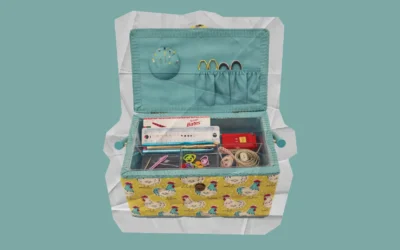It has been almost two years since the first wave of the COVID pandemic. This has led to inevitable job losses for both full- and part-time workers. The uncertainty of a part-time job and fluctuating income while navigating school can lead to increased stress among students.
In January of 2021, Statistics Canada released a Labour Force Survey which stated that Canada’s unemployment rate was at 9.4 per cent. Although some restaurants, such as MKT Fresh Food and Beer Market, and active night time bars, such as Greta, have restricted their hours, some restaurants are still under-staffed during these unprecedented times. In addition to job losses and uncertainty, Canadians are also more apprehensive about working outside of the home. According to the same Statistics Canada survey, more than two-fifths of Canadians who were employed or wanted to work in 2021 were concerned about contracting COVID in the workplace.
Andrew Smith, a fourth-year communications student at MacEwan University says he was hired at the Spotlight Cabaret, an entertainment lounge on Whyte Avenue, just after the initial lockdown in March of 2020. He says that Spotlight Cabaret has often closed, or had reduced hours for staff when events — such
as drag and burlesque shows — have been cancelled or rescheduled due to the pandemic. “It’s tough for sure. As an entertainment bar, we’re never quite sure whether we’re a bar or an entertainment venue until someone reports us. I’ve considered other work, but the job field is narrow enough as it is,” says Smith. Because Spotlight Cabaret is an entertainment venue, when the bar does not have any shows booked, his hours are shortened.
Due to the possible lack of job security, students may find themselves looking for government support instead of a job. The Canadian Government has provided various income supports such as the Canada Emergency Response Benefit (CERB), the Canada Recover Benefit (CRB), and Employment Insur-
ance (EI). Smith says that some of his friends that work in the restaurant industry are taking a break from their serving jobs and just collecting benefits, such as the Bartenders Benevolent Fund, which is a non-profit relief fund for workers in the hospitality industry.
Although these services are available to Canadians who are able to take the time to sit through the online application process, Smith says that obtaining government assistance can be a nightmare if you don’t do your research on which benefit to apply for. “Between January and April of this year, the government blocked me from claiming any aid because I wasn’t claiming the right thing,” Smith says. The university student says he lost out on $3,000 of financial aid and was feeding himself off of the savings he accumulated throughout his university career. “I’m still working off a debt that I wouldn’t have
had if the government had just been clearer.”
Smith believes one of the reasons a bar like his are understaffed is because benefit programs pay better than some jobs will, especially when hours are restricted, and that claiming a benefit isn’t exactly hard work if everything goes right.
Despite the stressful situation of employees such as Smith getting laid off from his job in the entertainment bar business, there is still hope for part-time job seekers. Restaurant managers such as Steven Sachse say that they have had no problem hiring new staff for the school year.
Sachse is the general manager of MKT Fresh Food and Beer market off of Whyte Avenue. Though they were forced to navigate patio-only seating, restricted hours, and being short-staffed in the beginning of the summer, the restaurant has still been able to hire successful applicants for the upcoming school year. “We’ve had no issues hiring (now). I think that there’s a lot of people that are wanting to get back to work, and especially students realize that they need a job to make it through university.”
Sachse ensures that he keeps all of his staff up to date on how the restaurant will navigate more restrictions and possible lockdowns,
and that he has done his best to ensure job security for all of his staff. He’s looking forward to restrictions being fully lifted as he believes once they are, the “industry will come back stronger than ever.”
For students who are looking for a job to push through the school year, Smith says it is best to apply at places that will not face another shutdown, such as restaurants that have lunch and dinner rushes, and aren’t solely dependent on events. For those who are trying to look for work outside of hospitality,
part-time jobs such as grocery store clerks, fast food workers, and grocery delivery services have not been shut down due to the pandemic. Companies such as DoorDash have also been hiring dashers to deliver food to the doorsteps of customers. According to the DoorDash website, since November 2020, DoorDash has hired over one million employees throughout Canada, the United States, and Australia. Positions like these offer flexibility for students with hectic schedules, but also often require upfront costs for things like insulated delivery bags, or possibly even higher car insurance premiums.
Smith advises students looking for a job in a pandemic to work your connections. “Parents, friends, classmates. Somebody will know someone looking for an employee. Because applying through blind websites is a nightmare.”
For students looking for work, Sachse says there are still options available for students going back to school. Some restaurants, such as MKT, will interview applicants in-person when they come in with their resume and fill out an application form. For other employment opportunities, websites like indeed.ca, monster.ca, or even the job board on the MacEwanLife page are a great place to start a search.





0 Comments